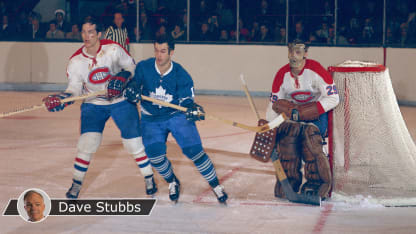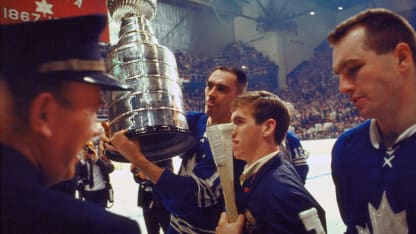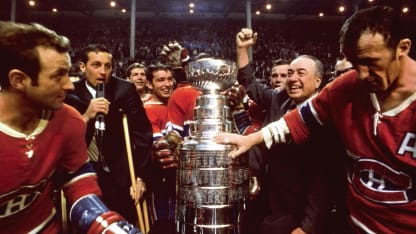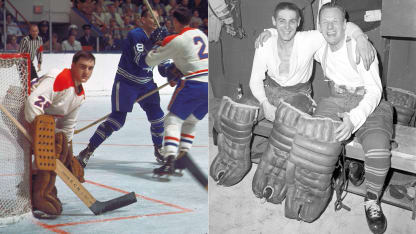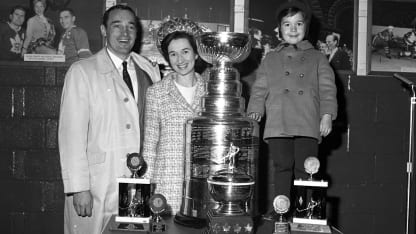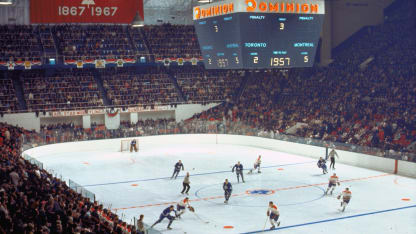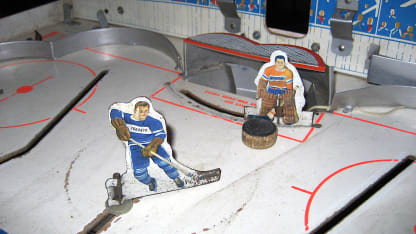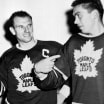Toronto's Maple Leaf Gardens on Feb. 22, 1967, a 5-2 Canadiens victory. The Maple Leafs would win the championship on Gardens ice in a six-game Final against Montreal.
Yvan Cournoyer, who won 10 Stanley Cup championships with Montreal between 1965-79, has said his hockey career was defined by two events -- winning the landmark 1972 Summit Series against the Soviet Union, and losing to Toronto in 1967.
"We were sure we'd beat the Maple Leafs. We thought we had a better team and we knew they were older than us," Cournoyer said. "I don't remember all the Stanley Cups I won year by year, but I remember 1967 all the time. When you've already won (which the Canadiens had in 1965 and 1966), you think you're going to win it again.
"The mistake we made is that we didn't respect the Leafs. It was a good lesson for me to think, 'Hey, I know you can win the Stanley Cup, but you're going to have to work harder for it.'"
As Toronto's championship drought began -- the Maple Leafs are without a title since 1967 -- the Canadiens won again in 1968, 1969, 1971, 1973 and four straight from 1976-79, then added titles in 1986 and 1993. The 1993 Cup title was the last won by a Canada-based team.
At last, for the first time in 42 years, two iconic teams are going head to head again in a best-of-7 series. And as they do, they renew a playoff rivalry that once was almost an essential rite of Canadian spring.
